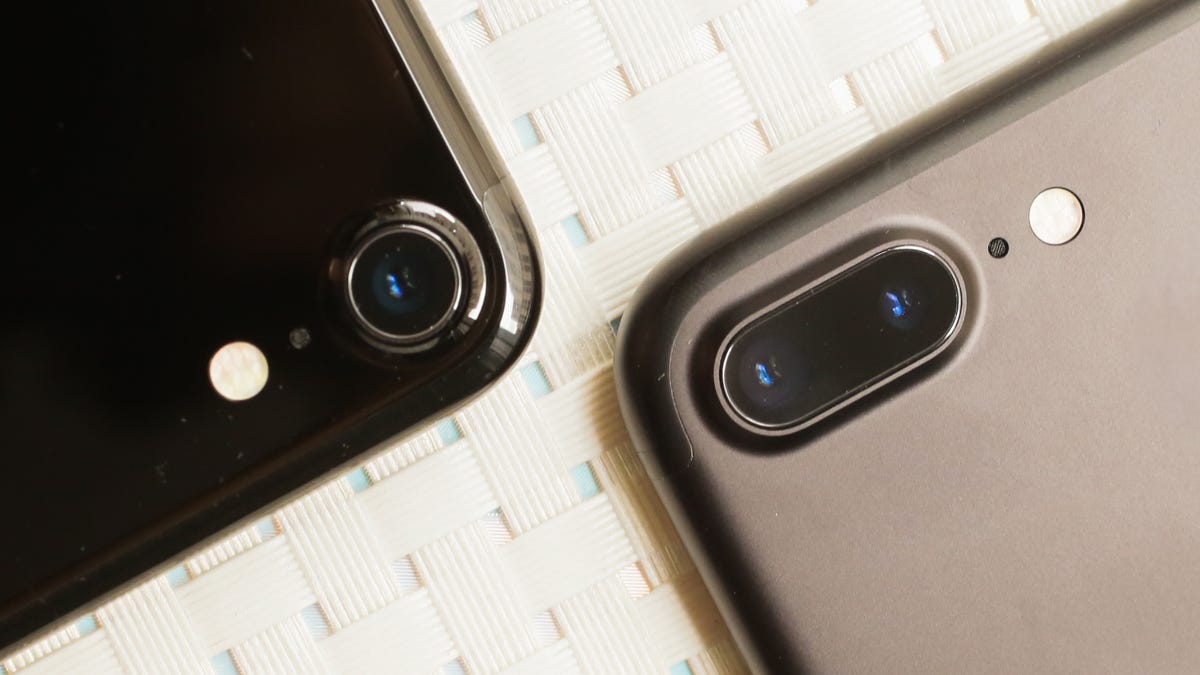Apple expands Qualcomm legal spat to China
The company reportedly is seeking 1 billion yuan -- nearly $150 million -- in damages for Qualcomm's alleged monopolistic practices.

Apple's legal battle with Qualcomm has gone international.
The iPhone maker on Wednesday filed two lawsuits against Qualcomm in China, according to Reuters, which cited a press release from Beijing's Intellectual Property Court.
The first alleges that Qualcomm "abused its clout in the chip industry," a violation of China's anti-monopoly law. Apple seeks 1 billion yuan ($145.32 million) in damages, Reuters said.
The second accuses Qualcomm of not making its cellular standard essential patents available broadly and cheaply. It asks the court to determine the terms of a patent license between Qualcomm and Apple.
Qualcomm said in a statement that it hasn't yet seen the complaints but had seen the court's press release. Don Rosenberg, executive vice president and general counsel of Qualcomm, said:
"These filings by Apple's Chinese subsidiary are just part of Apple's efforts to find ways to pay less for Qualcomm's technology. Apple was offered terms consistent with terms accepted by more than one hundred other Chinese companies and refused to even consider them. These terms were consistent with our NDRC [National Development and Reform Commission]Rectification plan. Qualcomm is prepared to defend its business model anywhere in the world. We are proud of our history of contributing our inventions to the development and success of the mobile communications ecosystem."
Apple referred CNET back to its comments about Qualcomm from Friday. Its statement said, in part, that "Apple believes deeply in innovation and we have always been willing to pay fair and reasonable rates for patents we use. We are extremely disappointed in the way Qualcomm is conducting its business with us and unfortunately after years of disagreement over what constitutes a fair and reasonable royalty we have no choice left but to turn to the courts."
The lawsuits in China come only days after Apple filed a suit against Qualcomm in the US and about a week after the US Federal Trade Commission accused Qualcomm of forcing Apple to use its chips exclusively in exchange for lower licensing fees.
In Apple's complaint filed Friday, Apple alleged the wireless chipmaker didn't give fair licensing terms for its processor technology. Apple also said Qualcomm sought to punish it for cooperating in a South Korean investigation into Qualcomm's licensing practices by withholding a $1 billion rebate.
Qualcomm is the world's biggest provider of mobile chips, and it created some of the essential standards for connecting phones to cellular networks. The company derives a significant portion of its revenue from licensing that technology to other chipmakers. Apple designs the processors in its iPhones and iPads, but it buys chips from Qualcomm to connect to 4G LTE and other cellular networks. Under Qualcomm's licensing structure, Apple pays it a fee for its chips and another fee for the intellectual property included in those chips. Most components suppliers bundle the IP cost in with the chip sales price.
For the iPhone 7 and 7 Plus introduced this year, Apple also started buying 4G LTE chips from another supplier, Intel. Because Intel's chips use some of Qualcomm's essential technology, Apple pays Qualcomm a licensing fee for those processors, as well, which is based off the total value of the iPhone ($650) versus the value of the Intel chip (closer to $20).
Apple wants a US court to lower the amount it pays Qualcomm in licensing fees, as well as order the return of the $1 billion. The company said in its suit that Qualcomm should be paid royalties based on the value of its particular contribution, not for contributions from other patent holders. Currently, Qualcomm's royalties are based off the selling price of a phone, rather than what portion Qualcomm's technology enabled.
Qualcomm has come under scrutiny in recent years for alleged monopolistic practices. Two years ago, it paid China nearly $1 billion to end a 14-month antitrust investigation in that country. Then, in December, South Korea hit Qualcomm with a $850 million fine following a three-year investigation. The South Korean Fair Trade Commission accused the chipset maker of having an "unfair business model" and creating a monopoly with its practices. The US FTC also has accused Qualcomm of illegally dominating the cellular chip market.
Update at 3:15 p.m. PT: Adds Apple's comment.
CNET Magazine: Check out a sampling of the stories you'll find in CNET's newsstand edition, right here.
Solving for XX: The industry seeks to overcome outdated ideas about "women in tech." Take a look here.

